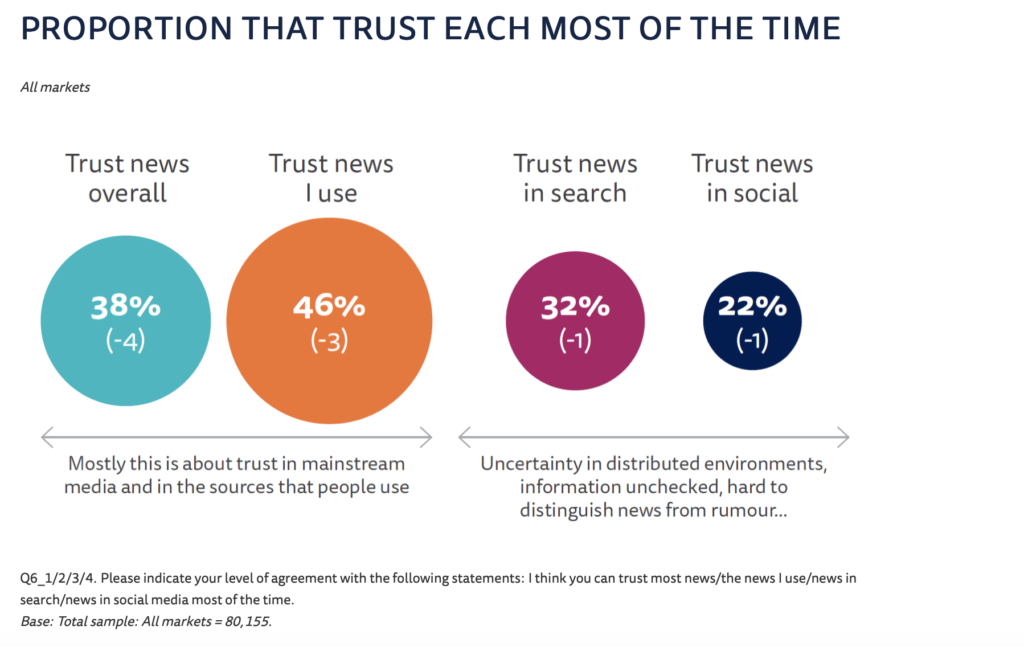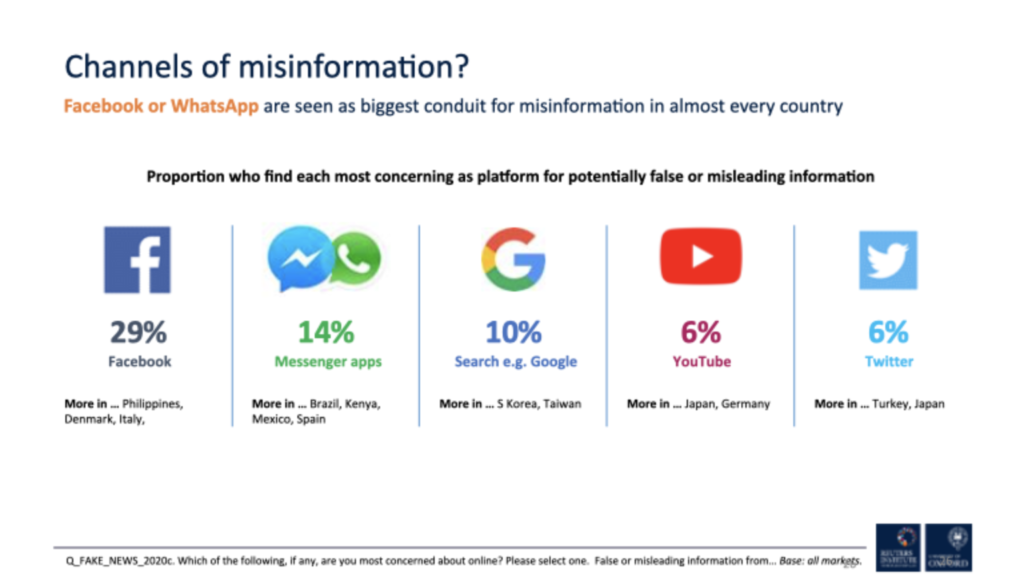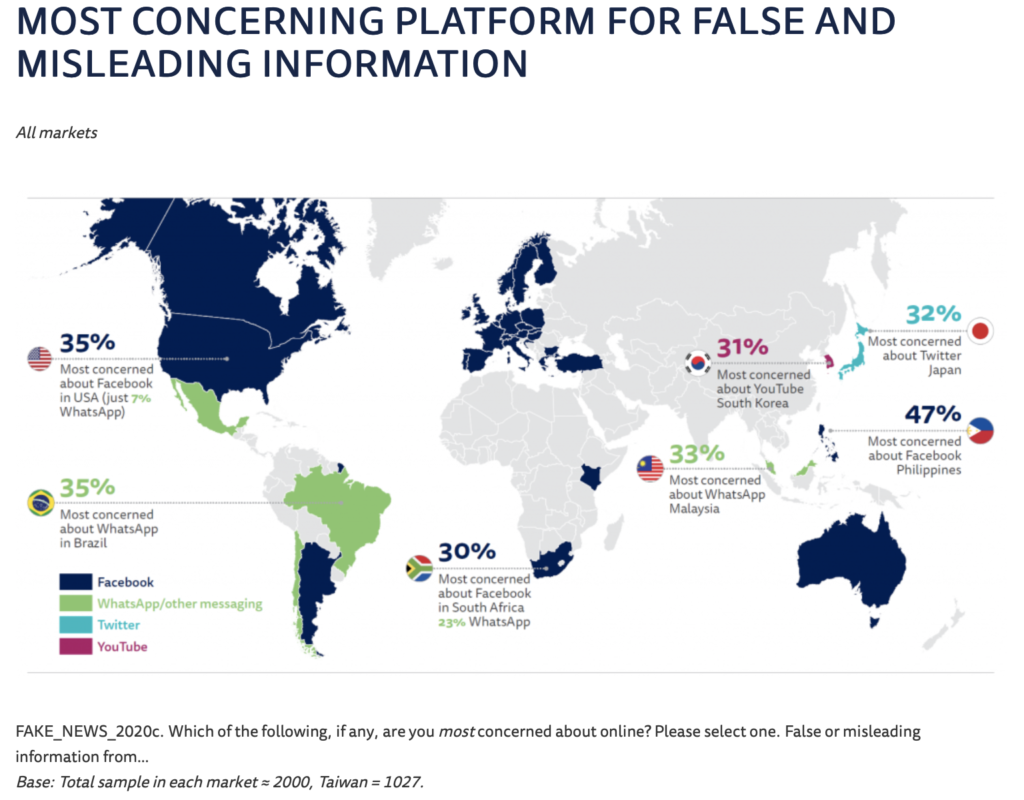Publishers and broadcasters across the world are recording huge increases in traffic and viewers during the coronavirus pandemic. The BBC News website alone went from 15 million unique users to 30 million.
And the reason for this flight to news brands, according to the Reuters Institute for the Study of Journalism? Trust.
The institute, which is based at Oxford University, surveyed 80,000 regular people in 40 countries about their attitudes and habits around news. They spoke to them before and during the Covid outbreak.
They found that in addition to trust in news organisations’ coverage being high – as high as any government’s – it was twice as high as their trust in information on social media platforms and YouTube.
Half of people trust the news they chose and from brands they know. But only 32% trusted it from search, like Google, and 22% from social media, like Facebook and Twitter.
Facebook is seen as the main channel for spreading false information almost everywhere
Nic Newman, report author
It was even lower in the US: 31% trusted news from search and only 14% from social media.
The full report can be read here but I hope they won’t mind me pulling out some of their graphics which neatly illustrate the gulf between named news brands people seek out, and links on tech platforms.

In fact, concern about MISinformation is growing.
“Facebook is seen as the main channel for spreading false information almost everywhere,” the report concluded.

In the US, Europe, UK and Australia particularly, readers are most concerned about the safety of the news they read on Facebook.

The report found a growth in the paywall/subscription model at specialist and national end of the market.
But it appears the advertising-funded model is here to stay for the majority of publishers.
Researchers asked people if they did not pay for news, what would it take to persuade them to do so.
A high percentage – 50% in UK, 40% in US – said nothing could persuade them: they expected to get it free.
